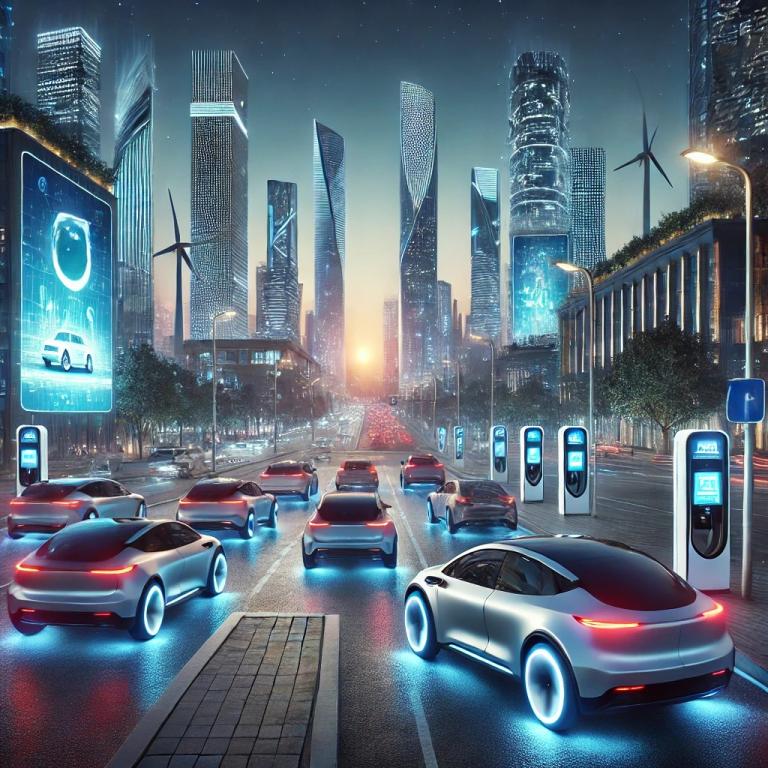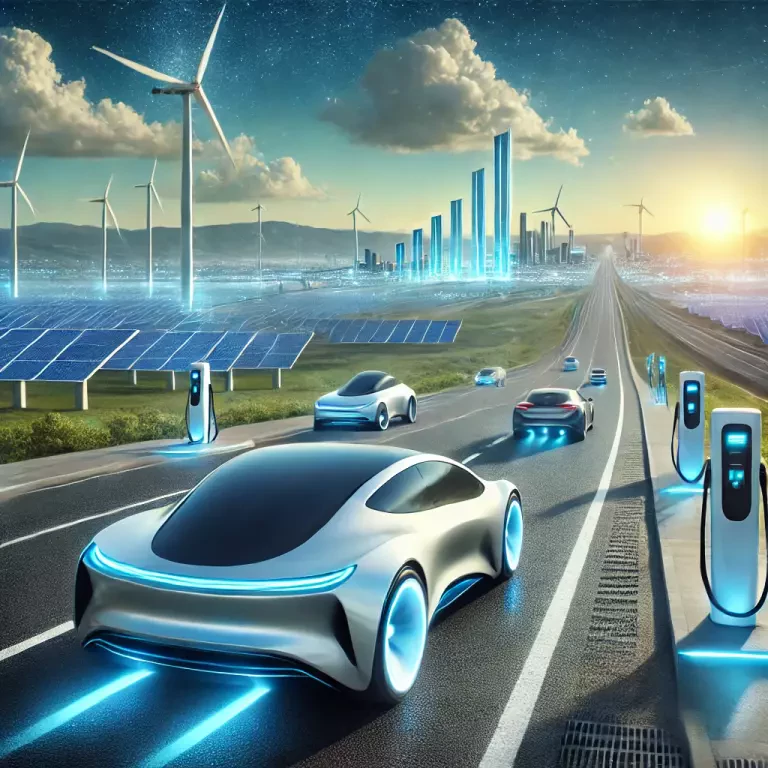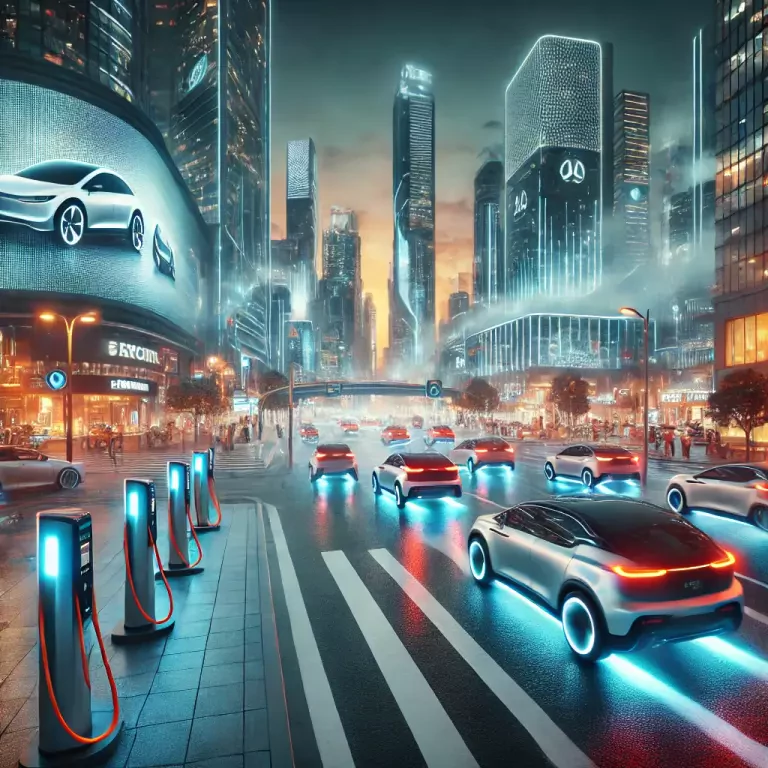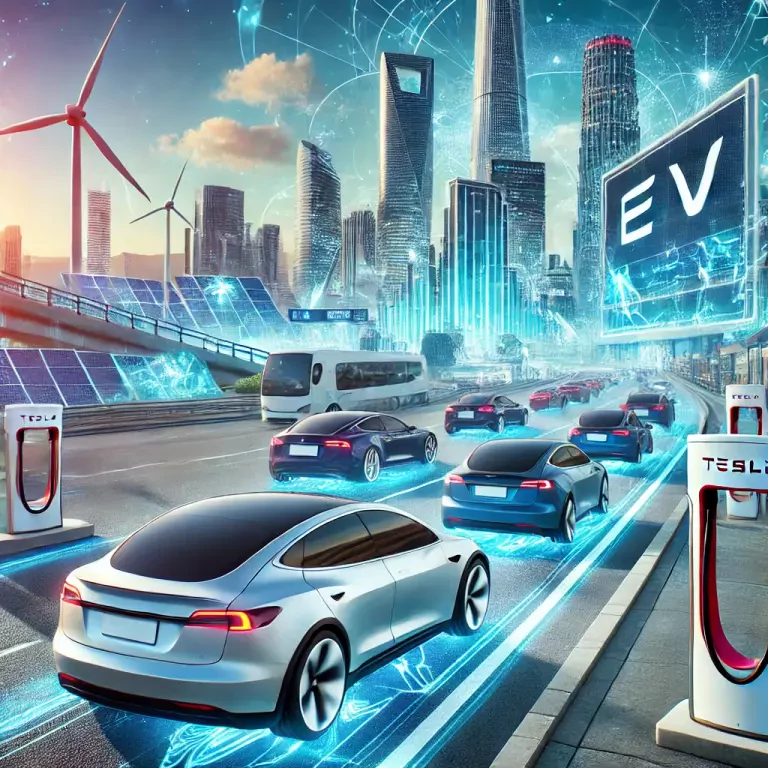
Over the last decade, the electric vehicle (EV) industry has experienced extraordinary growth as consumers and the government move ever closer to a greener environment. With these vehicles' advancements in electric car markets worldwide, EVs are now more popular than ever.
According to forecasts, sales are expected to surpass traditional gasoline vehicles in the coming years.
However, this sudden fascination with battery-powered cars raises a common question: who truly profits the most from this burgeoning industry?
Let's look at the answers to this question and their impact on the automotive industry.
Key Beneficiaries
Many people can benefit from the fast-growing EV market, but who is at the top? Who gains the most if consumers switch from gas-powered to electric cars?
Unfortunately, this question cannot be answered simply. This industry affects many different areas, from leading brands designing EVs to companies supplying the necessary batteries. Thus, different factors are involved in determining who benefits most.

Automobile and Battery Manufacturers
EV manufacturers are at the forefront of the electric car boom in North America and worldwide. As such, they are positioned for a large sales growth and substantial profits. Leading companies like Tesla and Ford are major pioneers in this market.
Tesla, often seen as the gold standard for battery electric vehicles, has expanded its portfolio with new models while dealing with the pressures of a sudden market growth.
Ford, once synonymous with traditional pickups and sedans, has now made large investments in EV development and has announced plans to modify their lineup to battery electric. Both companies benefit from vehicle sales and a growing market acceptance of electric vehicles as the popular choice.
Battery Producers
Most vital to the performance of electric cars are their batteries, primarily produced by major manufacturers like Panasonic, CATL, and LG Chem. As the demand for EVs increases, so does the need for advanced battery technology. The lithium-ion battery industry has thus become a lucrative sector, and manufacturers with investments in research and development are in the position to gain the most. Battery manufacturing yields healthy profit margins, especially considering the long-term contracts established between automakers and battery suppliers. As electric car sales surge, these producers will be in just the right spot to benefit from this market growth.
Infrastructure Providers
As EVs and hybrid electric cars become more common, demand for a robust charging infrastructure increases.
Charging network companies such as ChargePoint and Blink Charging are instrumental in creating this ecosystem, facilitating the widespread adoption of EVs. These companies benefit from fees charged to EV users and can attract financial backing as they expand their networks.
Moreover, utility companies are also key players in this space. As customer preferences shift to electric vehicles, they face solid demands for electricity, offering utilities a chance to decrease carbon emissions and increase revenue in this joint venture. These companies can benefit from incentivizing EV adoption while navigating the changing government regulations.

Raw Material Suppliers
Behind every electric vehicle lies a complex supply chain for the raw materials that produce battery packs. Mining and recycling companies that provide lithium, cobalt, nickel, and rare earth elements are also starting to profit from the electric car craze.
Lithium, for instance, is the backbone of modern batteries. With the demand for lithium skyrocketing, mining companies are seeing substantial returns. However, this boom also presents challenges, including environmental concerns tied to extraction processes and political factors affecting supply.
Additionally, recycling companies are finding a new role in managing battery end-of-life cycles, ensuring that essential materials are reclaimed and reused, effectively creating a circular economy. By investing in sustainable practices and technologies, these suppliers can maintain their profits while helping address concerns about depleting resources.
Financial Sector
The electric vehicle industry's explosive growth in North America and beyond has captured the attention of the financial sector. Investors and venture capitalists are eager to fund promising EV startups, hoping to get early access to a fast-growing market.
Many funds are focusing exclusively on reducing electric vehicles' carbon footprint, driving up value for companies and startups in this distinct market.
The stock market has responded positively to successful EV launches, with companies like Tesla experiencing meteoric price increases that attract further investment. Investors in the supply chain, from manufacturers to infrastructure providers, can witness strong stock performance as the industry evolves.
Moreover, publicly traded companies can raise capital through initial public offerings (IPOs), allowing them to expand operations and accelerate growth. This market dynamism reflects the sector's broad interest, suggesting that stakeholders in the financial sector stand to gain significantly as electric vehicles increasingly dominate the automotive market.

Government and Society
The implications of the electric car boom extend beyond corporate profits; governments and society also benefit from this transition. Many governments are offering incentives and subsidies to promote the adoption of electric vehicles, effectively driving up consumer demand.
Tax credits, rebates, and grants for charging infrastructure are just some financial mechanisms implemented to bolster EV uptake. Such initiatives help offset the initial costs of electric cars, making them more accessible to the general public.
Furthermore, the societal benefits of electric vehicles are undeniable. Shifting from fossil fuels to renewable sources of electricity reduces greenhouse gas emissions, contributing to cleaner air and a healthier environment. As people become more aware of climate change, the demand for sustainable options like electric vehicles increases, aligning consumer preferences with broader environmental goals.
On an economic level, the transition toward electric vehicles has the potential to stimulate job creation in various sectors. As the demand for electric vehicles grows, so does the need for skilled labor in manufacturing, engineering, and maintenance roles specific to EVs. This shift has already led to new training programs and educational initiatives to equip workers with the necessary skills to thrive in the evolving automotive landscape.

Conclusion
In summary, the electric vehicle revolution represents a multifaceted opportunity for profit that extends beyond traditional automotive manufacturers. From automakers and battery producers to software developers and charging infrastructure companies, diverse stakeholders stand to benefit as the industry matures. Investors in publicly traded companies also have the chance to see significant returns fueled by a rapidly growing market.
Moreover, governments play a pivotal role by creating favorable policies and incentives that promote electric vehicle adoption and nurture a greener society. The societal benefits, including reduced emissions and job creation, further underscore the importance of this transition. As consumer preferences shift towards sustainable practices, the EV auto industry is poised for steady growth, leading to a positive feedback loop that provides larger profits and fosters innovation. Ultimately, the transition to electric vehicles is not just about individual gain; it represents a collective step toward a sustainable future for the planet and society.
Do you need to ship your new electric or hybrid vehicle? Consider A-1 Auto Transport's professional services! We'll support you through the entire process and deliver your vehicle safely and sound at your desired destination.
Get your free shipping quote today!






 Share on Facebook
Share on Facebook Share on LinkedIn
Share on LinkedIn Share on Twitter
Share on Twitter




 Google
Google  Instagram
Instagram  Trustpilot
Trustpilot 



